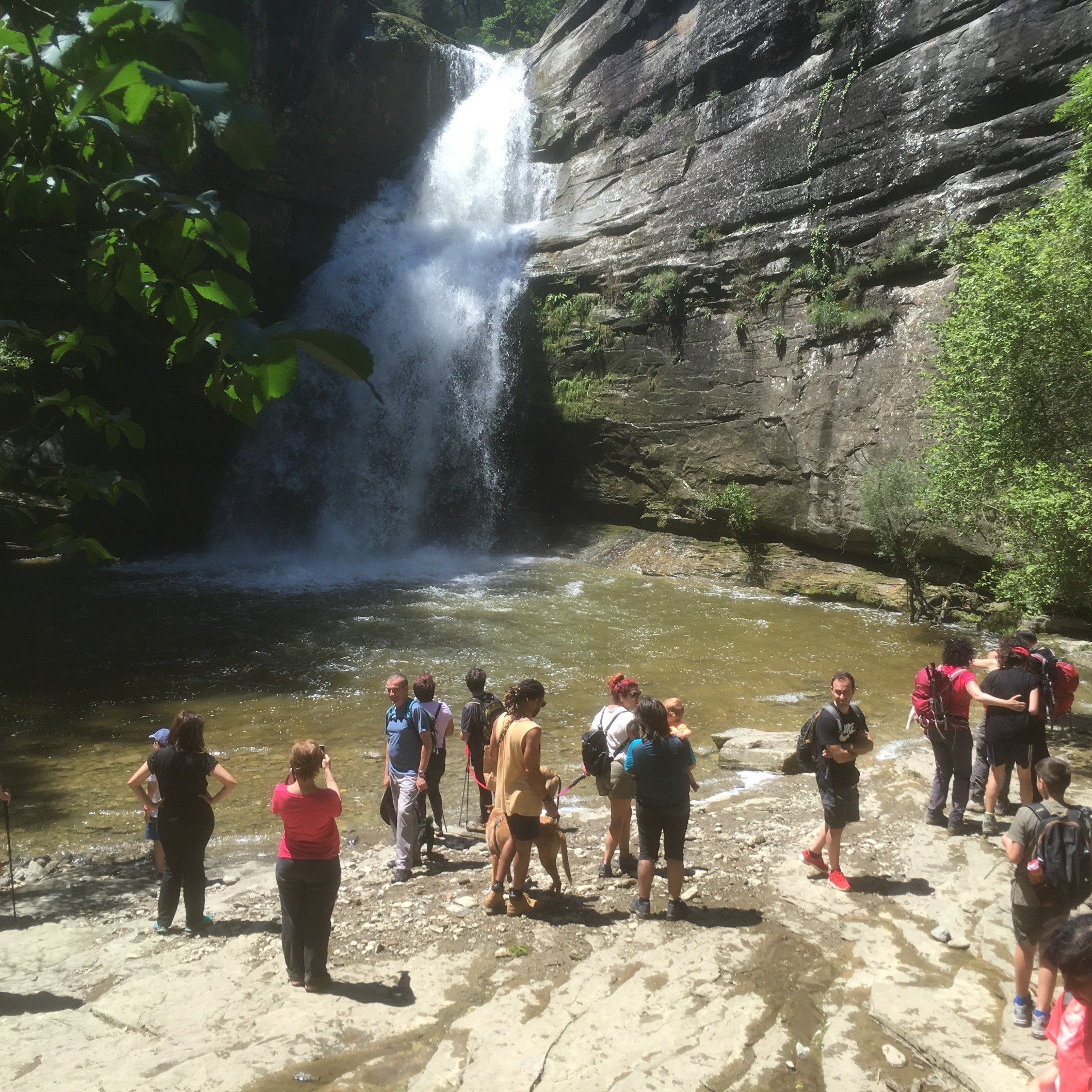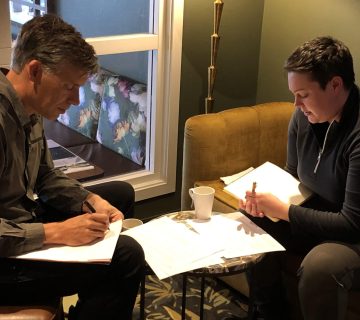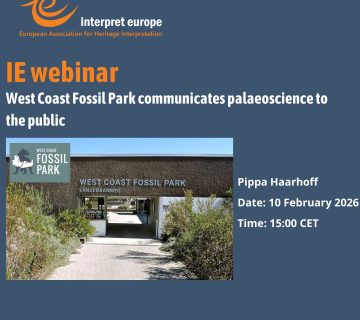Interpretation of the meanings and spiritual values of natural tourist hot spots to change the behavior of visitors and improve conservation.
Collsacabra is a natural bioregion located one hour north of Barcelona. Made up of three small towns that together have a total of 2,667 inhabitants, it welcomes several thousand visitors from the metropolitan area every year. The small town of Rupit, for example, with only 276 inhabitants serves more than 150,000 visitors a year at its information office. The natural beauty of the Collsacabra landscapes, one of its main tourist attractions, is also one of the values most cherished by the people who live in the territory.Inhabitants’ concerns about overcrowding of tourists in some of their most beloved natural spaces grew little by little until in 2018 Collsacabra’s mayors decided to remedy it.
The initial situation: Overpressured emblematic natural spaces, desolate residents and visitors unhappy with the reception. The situation threatened an emotional breakdown in the face of the economic opportunity represented by tourism in a rural area.
The function of interpretive guides of the territory played a very important role as a nexus between the heritage, residents and visitors and thus the project of Natural Sanctuaries was born.
Initially the complaint was about incivility of the visitors but after conducting around 3,500 interviews with the users of the spaces we discovered that the main cause of the inappropriate behavior was due to a difficulty in connecting with the immaterial values and meanings of the places, due to ignorance or lack of habit.
Citizen participation in identifying values, threats and a conflict management proposal boosted a campaign of environmental informants led by the young residents of the villages. Good training in communication, interpretation and conflict management was key to explaining to visitors the values of the site, what had motivated that situation and how the users could connect with the values of the site, foster empathy and reconcile the enjoyment of the nature and its conservation.
Two years later, through new interviews, we validated the management system that became municipal ordinances and spread to nine other threatened places in the territory, generating more jobs for the young people of the villages.
In the spring of 2023, the project received the ‘Trought Sustainability’ award at the 39th edition of the CETT Alimara B Travel Awards presented by UNTWO in Barcelona.
We are all visitors or tourists at some point in our lives and we visit or “consume tourism resources” somewhere or other. On the other hand, we are all residents of some beloved place where we have emotional ties and respect for the material and immaterial values of our own territory.
Recognising the spiritual meanings and values of the heritage we visit will make our experiences more fulfilling, create a better reception by residents, and encourage better conservation of natural heritage. In this paradigm, interpretation based on values is a fundamental tool to improve the relationships that people have with ourselves, with others and with the living landscapes we visit.
Gerard Costa is a consultant in regenerative bioregional development at Anigami Experièncias (anigami.cat) and Miceli (miceli.social) and is founder of the Santuarisnaturals.org project. You can contact him at: gerard@anigami.cat
To cite this article: Costa, Gerard (2024) ‘Natural Sanctuaries in the Collsacabra bioregion‘in Interpret Europe Newsletter 2-2024, pg.17.
Available online: https://interpret-europe.net/wp-content/uploads/2024/07/PDF-Newsletter-2024_2.pdf




